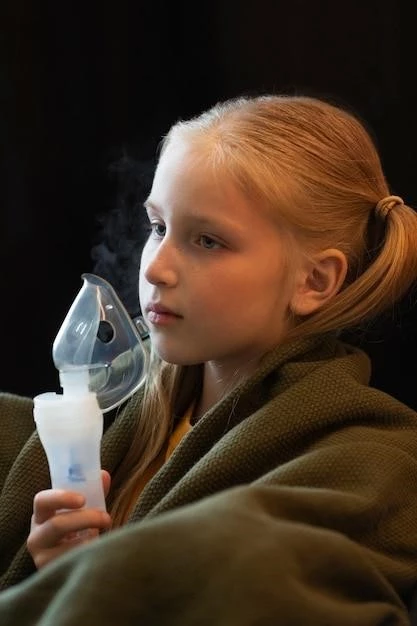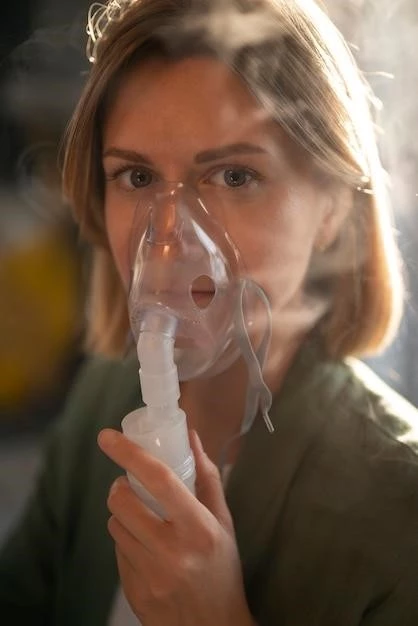Inhalant Abuse and Aliphatic Hydrocarbons
Inhalant abuse refers to the dangerous practice of intentionally inhaling volatile substances for a quick high. One common solvent found in inhalants is toluene‚ a toxic chemical present in products like paint and glue.
Health risks associated with inhalant abuse are severe‚ as these chemicals are hazardous to the respiratory system. The chronic effects of inhaling these volatile substances can lead to toxic damage over time.
It’s crucial to understand the dangers posed by sniffing or huffing inhalants‚ as they can cause intoxication and addiction. Over time‚ this abuse can result in dangerous health consequences.
Aliphatic hydrocarbons are chemicals commonly found in inhalants‚ and their toxic nature makes them particularly hazardous when inhaled. It’s important to be aware of the signs and symptoms of inhalant intoxication.
To protect your health‚ it’s crucial to be informed about the risks associated with inhaling solvent chemicals and to take steps to prevent inhalant abuse.
Understanding Inhalant Abuse
Inhalant abuse is a serious public health concern that involves the deliberate inhalation of chemicalsvolatile solvents‚ for their intoxicating effects. Often referred to as ″huffing″ or ″sniffing‚″ this practice poses significant risks to both physical and mental well-being.
Many household products contain solvents that individuals may misuse as inhalants‚ seeking a quick high or altered state of mind. Common substances include paint thinners‚ gasoline‚ glues‚ and aerosols. Despite being easily accessible‚ these chemicals can cause severe harm when inhaled.
Understanding the motivations behind inhalant abuse is crucial. Often‚ individuals turn to inhalants as a form of escape or to cope with stressmental health issues. However‚ the temporary relief provided by inhalants is short-lived and outweighed by the long-term dangers posed by their toxic properties.
It’s important to recognize that inhalant abuse is not just a phase or harmless experimentation. The chemicals in these products can have devastating effects on the brainheart‚ lungs‚ and other vital organs. Continued misuse can lead to a cycle of addiction that is challenging to break.
Education is key in combatting inhalant abuse. By raising awareness about the risks and consequences of inhaling toxic substances‚ individuals can make more informed choices about their well-being. If you or someone you know is struggling with inhalant abuse‚ seek help from healthcare professionals or support groups to address the underlying issues and work towards recovery.
Dangers of Inhalant Abuse
Understanding the dangers of inhalant abuse is crucial in safeguarding your health and well-being. Inhalants‚ which often contain volatile chemicals like toluene‚ pose significant risks to individuals who misuse them for a quick high.
One of the primary dangers of inhalant abuse is the impact on the respiratory system. Inhaling solvent fumes can lead to immediate irritation of the lungsthroat‚ and nose. Prolonged exposure can result in chronic respiratory issues‚ such as shortness of breath or coughing.
Additionally‚ the toxic properties of inhalants can affect the central nervous systemabuse can lead to impaired coordination‚ memory issues‚ and difficulty concentrating. These cognitive impairments can have long-lasting consequences on mental health.
Furthermore‚ the cardiovascular system is also at risk from inhalant abuse. The chemicals in inhalants can cause heart palpitations‚ irregular heartbeats‚ and in severe cases‚ heart failure. These dangers emphasize the importance of avoiding inhalant misuse.
It’s essential to be aware of the hazardous nature of aliphatic hydrocarbons found in many inhalants. These volatile substances can disrupt the body’s natural processes and lead to severe health complications when inhaled irresponsibly.
By understanding and acknowledging the dangers of inhalant abuse‚ individuals can make informed decisions to protect themselves and avoid the serious health risks associated with inhaling chemicals for recreational purposes.
Chronic Effects of Inhalant Abuse

Long-term inhalant abuse can have serious consequences on both physical and mental health. The chronic effects of inhaling chemicals found in solvents and other inhalants can be devastating and permanent if not addressed in a timely manner.
One of the chronic effects of inhalant abuse is the impact on the brain. Inhalants can cause cognitive impairments such as memory loss‚ confusion‚ and difficulty learning
Moreover‚ the toxic nature of inhalants can lead to damage in the central nervous system over time. Individuals who chronically abuse inhalants may experience nerve damage‚ muscle weakness‚ and tremors. These chronic effects can impact one’s quality of life significantly.
On a physical level‚ long-term inhalant abuse can result in liver damage‚ kidney dysfunction‚ and cardiovascular issues. The systemic effects of inhaling volatile substances can manifest in various organ dysfunctions that require medical intervention.
Furthermore‚ individuals who engage in chronic inhalant abuse may experience psychological issues such as anxiety‚ depression‚ and mood disorders. These mental health challenges can be exacerbated by the continued misuse of inhalants;
It is essential to recognize the long-term risks associated with inhalant abuse and seek help from medical professionals if you or someone you know is struggling with addiction to inhalants. Addressing the chronic effects early on can help prevent further damage and improve the chances of recovery and healing.
Hazardous Nature of Aliphatic Hydrocarbons
Understanding the hazardous nature of aliphatic hydrocarbons is crucial in grasping the risks associated with inhalant abuse. Aliphatic hydrocarbons are chemical compounds commonly found in products like paints‚ glues‚ and cleaning agents‚ making them easily accessible for misuse.
When these volatile substances are inhaled‚ they can have serious health effects on the body. Aliphatic hydrocarbons are known to be toxic to the respiratory system‚ causing irritation to the lungs and throat when inhaled.
The hazardous properties of aliphatic hydrocarbons extend beyond immediate respiratory issues. Prolonged exposure to these chemicals can lead to chronic respiratory conditions such as bronchitis or pneumonia‚ impacting one’s lung function and overall health.
Furthermore‚ aliphatic hydrocarbons can have neurotoxic effects on the central nervous system. The toxic properties of these compounds can affect brain function and lead to cognitive impairments over time‚ posing a significant health risk to individuals engaging in inhalant abuse.
Due to the hazardous nature of aliphatic hydrocarbons‚ it is crucial to avoid inhaling these chemicals or misusing products containing them as inhalants. Education and awareness about the potential dangers of these compounds are essential in preventing health complications resulting from their toxic effects.
If you or someone you know is struggling with inhalant abuse involving aliphatic hydrocarbons‚ seek help from healthcare professionals or substance abuse treatment programs to address the addiction and mitigate the hazardous impact of these chemicals on health.
Signs and Symptoms of Inhalant Intoxication
Recognizing the signs and symptoms of inhalant intoxication is crucial in identifying potential inhalant abuse and seeking necessary help. When individuals inhale volatile substances like aliphatic hydrocarbons‚ they may exhibit various indications of intoxication that signal immediate danger.
One common sign of inhalant intoxication is slurred speech. Individuals under the influence of inhalants may have difficulty speaking clearly or articulating their words‚ indicating the impairing effects of the chemicals on the central nervous system.
Physical symptoms of inhalant intoxication can include nausea‚ vomiting‚ and headaches. These adverse effects on the body can result from the toxic nature of the inhaled substances and should not be ignored.
Behavioral changes‚ such as agitation or confusion‚ are often observed in individuals experiencing inhalant intoxication. The altered mental state caused by inhalants can lead to unpredictable actions and jeopardize the individual’s safety.
Signs of inhalant abuse may also manifest as dizziness‚ loss of coordination‚ and unexplained chemical odors on clothing or breath. These indicators can help identify ongoing inhalant misuse that poses significant risks to health.
It is essential to be alert to the signs and symptoms of inhalant intoxication‚ especially in individuals who may be vulnerable to substance abuse. Seeking immediate medical attention if you suspect someone is experiencing inhalant intoxication is crucial in preventing further harm and addressing the underlying issues leading to inhalant abuse.
If you or someone you know is exhibiting signs of inhalant intoxication‚ do not hesitate to contact emergency services or healthcare professionals for prompt evaluation and intervention. Early recognition and intervention can help mitigate the dangers associated with inhalant abuse and prevent severe health complications.
Health Risks Posed by Inhaling Chemicals
Inhaling chemicals through inhalant abuse poses significant health risks that can have detrimental effects on the body. Whether it’s the solvents present in household products or the aliphatic hydrocarbons found in industrial substances‚ the dangers of inhaling these toxic chemicals are manifold.
One of the primary health risks associated with inhaling chemicals is respiratory damage. The toxic fumes from inhalants can irritate the lungs and airwayscoughing‚ wheezing‚ and breathing difficulties.
Moreover‚ inhaling solvents and other chemical compounds can have neurological effects‚ impacting brain functioncognitive abilitiesmemory problems‚ confusionimpaired coordination.
The cardiovascular system is also at risk from inhaling chemicals. Inhalants can cause heart palpitations‚ increased heart rate‚ and even cardiac arrest in severe cases‚ highlighting the dangerous impact of these substances on heart health.
Inhaling toxic chemicals can also lead to liver damage‚ kidney dysfunction‚ and systemic toxicity. The accumulation of these chemicals in the body can disrupt organ function and contribute to various health complications over time.
It is essential to be aware of the health risks posed by inhaling chemicals and to avoid the misuse of volatile substances. If you or someone you know is struggling with inhalant abuse‚ seek help from healthcare professionals or substance abuse treatment programs to address the addiction and minimize the serious health consequences associated with inhaling toxic chemicals.
Preventing Inhalant Abuse
Preventing inhalant abuse is essential to safeguard your health and well-being from the dangers posed by volatile substances like aliphatic hydrocarbons. By taking proactive measures and raising awareness‚ you can reduce the likelihood of falling into the trap of inhalant misuse.
One crucial step in preventing inhalant abuse is education. Understand the risks associated with inhaling chemicals and the serious health consequences
Encouraging open communication about inhalant abuse and substance misuse within families and communities is vital. Create a supportive environment where individuals feel comfortable discussing struggles and seeking help if needed.
Properly store and secure household products and chemicals that could be used as inhalants. Keep these items out of reach of children and adolescents to prevent accidental or intentional inhalant abuse.
Teach young adults about the dangerous consequences of inhalant abuse and the importance of making healthy choices
Seek professional help if you or someone you know is struggling with inhalant abuse. Mental health professionals‚ addiction counselors‚ and support groups can provide valuable guidance and assistance in overcoming dependency on inhalants.
Engage in healthy activities and hobbieswellnesspositive outlets
Remember that prevention is key in addressing inhalant abuse. By staying informed‚ fostering open communication‚ and seeking help when needed‚ you can protect yourself and your loved ones from the hazardous effects of inhaling chemicals
